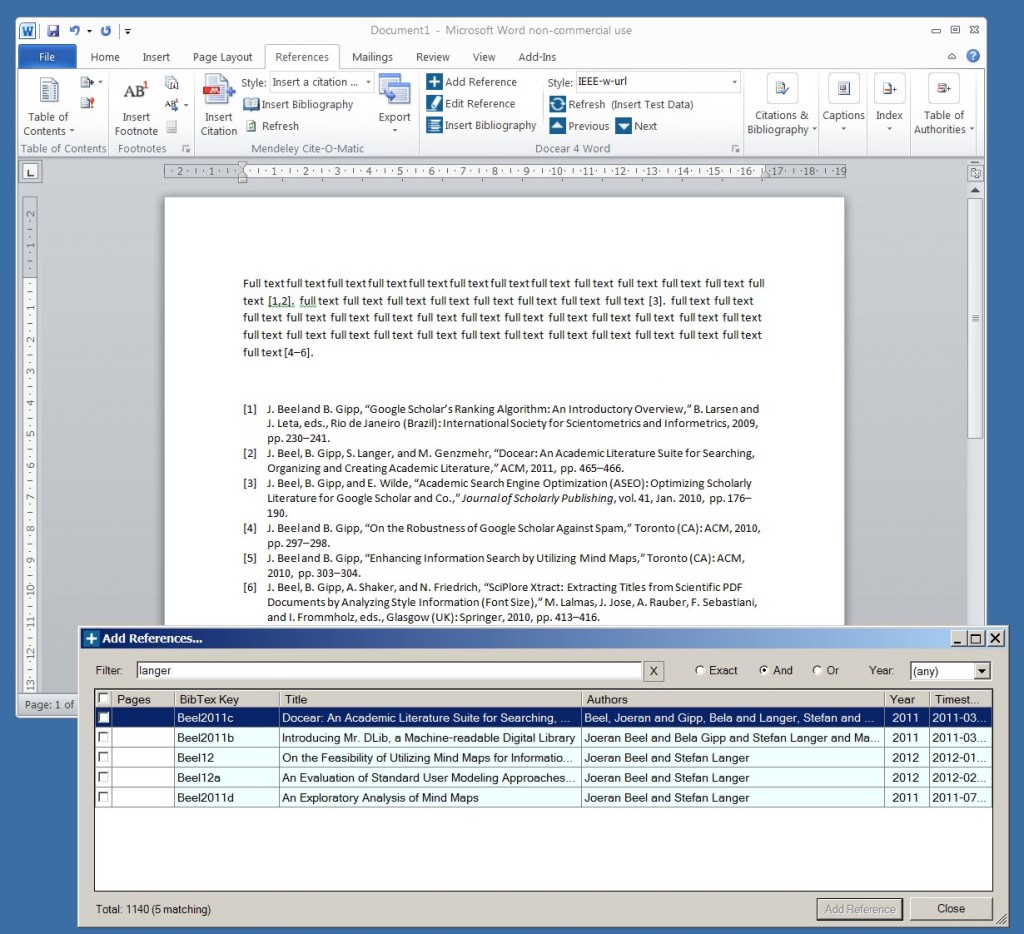Docear Beta 6 (Usability improvements)
Docear 1.0 Beta 6 is available for download. There are quite a few improvements and new features. The major change is a small icon to refresh the incoming mind map. Instead of selecting the entry in the menu, you can just click on the icon to get a new list of all your PDFs. In addition, when you create a new workspace (or start Docear for the very first time), the mind maps in the Library (Incoming, Literature & Annotations, …) will have a brief description for how to use them. We hope these two new features make Docear easier to use. Furthermore, Adobe Reader X and Professional are now correctly recognized by Docear and LaTeX users will be happy to hear that they can copy reference keys with a \cite{} prefix.
The complete changes are as follows






